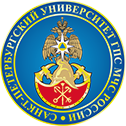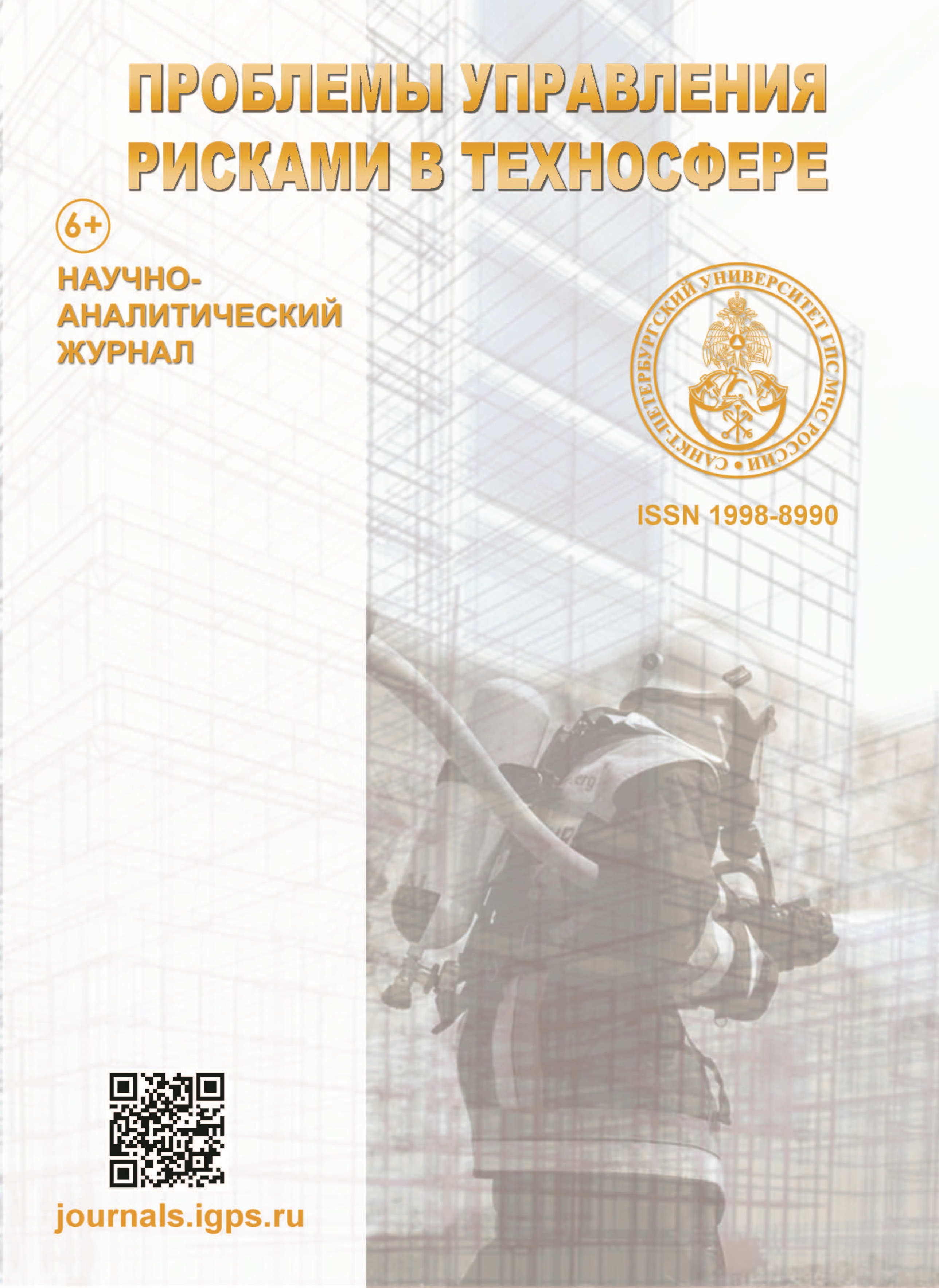Russian Federation
Russian Federation
Russian Federation
Russian Federation
The need for an independent, sovereign existence of any country requires special attention to national security issues. The current state of mankind is characterized by a symbiosis of technology and nature, the use of various technologies, which are accompanied by the emergence of new threats and technosphere hazards, which actualizes the problem of understanding the concept of «national security». These circumstances required generalization and concretization of concepts used in the field of security at the system level. In the study of the issues under consideration, systematic, historical-retrospective, and cybernetic approaches were chosen as a methodological basis. The evolution of the human habitat is considered, the importance of the problem of ensuring technosphere safety is determined, due to the contribution of technosphere funds and technologies to maintaining the management processes of critical infrastructure facilities (potentially dangerous objects) of the state, as well as the catastrophic consequences of accidents at such facilities. A concept is proposed describing the national security system of the state as an organizational and technical management (socio-cyberphysical) system that allows integrating efforts to ensure various types of national security into a single complex.
security, noosphere, technosphere, technosphere security, national security, national security system
1. Maslow A.H. A theory of human motivation // Psychological Review. 1943. № 50. P. 370–396.
2. Maslou A. Motivaciya i lichnost'. SPb.: Piter, 2003. 352 s.
3. Vernadskij V.I. Neskol'ko slov o noosfere // Antologiya filosofskoj mysli. Russkij Kosmizm: sb. M.: Pedagogika-Press, 1993. 368 s.
4. Vernadskij V.I. Nachalo i vechnost' zhizni. M.: Sov. Rossiya, 1989. 704 s.
5. Shapovalova I.S., Gozhenko G.I. Ponyatie tekhnosfery: analiticheskij obzor formirovaniya i izucheniya // Nauchnyj rezul'tat. Ser. «Sociologiya i upravlenie». 2015. № 2. S. 51–57.
6. Edward A. Lee The Past, Present and Future of Cyber-Physical Systems: A Focus on Models // Sensors (Basel). 2015. № 15 (3). P. 4837–4869.
7. Kotenko I., Saenko I., Sineshchuk Yu. Optimizing Secure Information Interaction in a Distributed Computing System by the Method of Sequential Concessions // Proceedings – 28th Euromicro International Conference on Parallel, Distributed and Network-Based Processing. 2020. Vasteras, Sweden. 10 p. DOI:https://doi.org/10.1109/PDP50117.2020.00072.
8. Sanfelice R.G. Analysis and Design of Cyber-Physical Systems. A Hybrid Control Systems Approach // Cyber-Physical Systems: From Theory to Practice. CRC Press, 2016.
9. Mal'kova T.P. Kiborgizaciya: ontologicheskie problemy issledovaniya // Istoricheskie, filosofskie, politicheskie i yuridicheskie nauki, kul'turologiya i iskusstvovedenie. Voprosy teorii i praktiki. 2018. № 3 (89). C. 87–92.
10. Ryabinin I.A. Nadezhnost' i bezopasnost' strukturno-slozhnyh sistem. SPb.: Izd-vo S.-Peterb. un-ta, 2007. 275 s.
11. Platon. Polnoe sobranie sochinenij v odnom tome. M.: Izd-vo «AL'FA-KNIGA», 2016. 1311 s.
12. Akimov V.A., Didenko S.L., Smirnov A.S. Nauchnye osnovy obshchej teorii bezopasnosti zhiznedeyatel'nosti. M.: FGBU VNII GOCHS (FC). 2019. 252 s.
13. Belov S.B. Bezopasnost' zhiznedeyatel'nosti i zashchita okruzhayushchej sredy (tekhnosfernaya bezopasnost'): ucheb. 2-e izd., ispr. i dop. M.: Yurajt, 2011. 680 s.
14. Efremov S.V. Upravlenie tekhnosfernoj bezopasnost'yu. Kratkij kurs. SPb.: S.-Peterb. gos. politekh. un-t Petra Velikogo, 2013.
15. Pirumov V.S. Nekotorye aspekty metodologii i issledovaniya problem nacional'noj bezopasnosti Rossii v sovremennyh usloviyah // Geopolitika i bezopasnost'. 1993. № 1. S. 7–17.
16. Poddubnyj A.O. K voprosu o ponyatii «nacional'naya bezopasnost'» // Rossijskaya yusticiya. 2019. № 6. S. 6–7.
17. Kovalev A.A. Istoriya bezopasnosti kak novaya oblast' zapadnoj istoricheskoj nauki // Genesis: istoricheskie issledovaniya. 2021. № 12. S. 225–241. DOI:https://doi.org/10.25136/2409-868X.2021.12.34867.
18. Medvedev M.V. Podhody k traktovke ponyatiya «nacional'naya bezopasnost'» // Molodoj uchenyj. 2020. № 23 (313). S. 517–520. URL: https://moluch.ru/archive/313/71316/ (data obrashcheniya: 04.11.2023).
19. Romm Joseph J. Defining National Security: The Nonmilitary Aspects Council on Foreign Relations. New York, 1993.
20. Kikot'-Gluhodedova T.V. Administrativno-pravovoe obespechenie nacional'noj bezopasnosti v Rossii, SShA i stranah Evropy: sravnitel'noe issledovanie: dis. … d-ra yurid. nauk. M.: Moskovskij gos. yurid. un-t im. O.E. Kutafina, 2019. 418 s.
21. Pravovye aspekty bezopasnosti edinogo informacionnogo prostranstva silovyh vedomstv (MVD, MCHS, MO) / A.I. Primakin [i dr.] // Vestnik Sankt-Peterburgskogo universiteta MVD Rossii. 2012. № 2 (54). S. 234–240.
22. Bartosh A.A. Evolyuciya strategii nacional'noj bezopasnosti Rossii. Chast' 2. Transformaciya zakonodatel'noj bazy Rossii v sfere obespecheniya bezopasnosti // Obozrevatel'. 2016. № 8 (319). S. 5–16.
23. Dubrovin E.R., Dubrovin I.R. Sovremennaya sistema nacional'noj bezopasnosti Rossijskoj Federacii // Voennoe obozrenie. 2019. URL: https://topwar.ru/159640-sovremennaja-sistema-nacionalnoj-bezopasnosti-rossijskoj-federacii-i-ee.html (data obrashcheniya: 06.02.2024).
24. Theoretical and methodological substantiation of the structure of the state national security system / M.Yu. Zelenkov [et al.] // LAPLAGE EM REVISTA. 2021. № 7 (3B). P. 421–437. DOI:https://doi.org/10.24115/S2446-6220202173B1569.
25. Grigor'ev V.N. Obespechenie nacional'noj bezopasnosti Rossijskoj Federacii v sfere deyatel'nosti MCHS Rossii // Tekhnologii grazhdanskoj bezopasnosti. 2021. T. 18. № 4 (70). S. 90–96.







